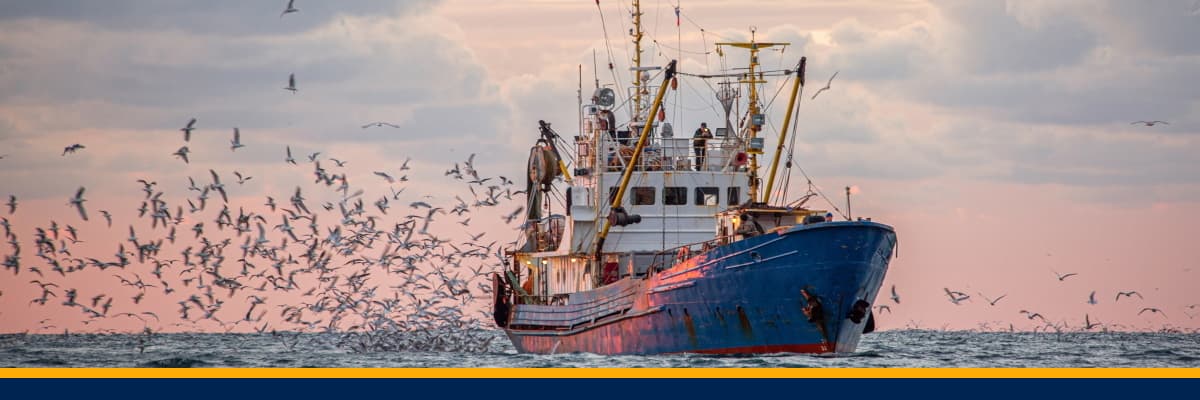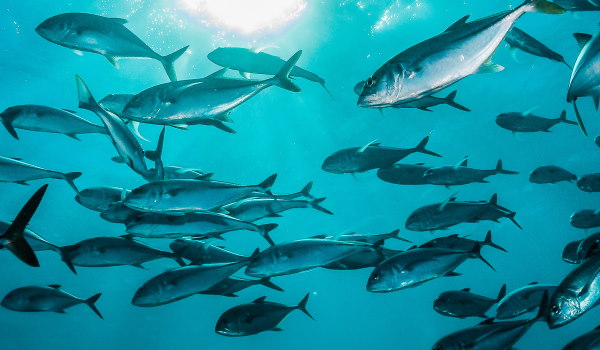[Image credit: Adobe Stock]
Introduction
The Seafood Business for Ocean Stewardship (SeaBOS) initiative is a science-business collaboration based on a dialogue with a cohort of ‘keystone actors’ in the seafood sector.
Through formally agreed commitments, SeaBOS member companies are working to address sustainability issues in their own operations and along their supply chains. The long-term ambition of the SeaBOS initiative is to create a cascade of sustainability norms, behaviours and impacts throughout the seafood industry, prompted by SeaBOS member company behaviour.
The initiative is being studied by the existing research team (the ‘science of SeaBOS’) and we are seeking to engage more widely in this aspect of the work. We wish to curate the development of organisational science insights into the SeaBOS initiative drawing from across a full array of business and management sub-fields. This might include, among others:
- Collaboration dynamics
- Trust outcomes and processes
- Leadership
- Supply chain management
- Organisation identity
- Organisational control
- Accountability for stewardship actions & outcomes
- Performance measurement & management approaches
More information about the scientific work behind the initiative can be found on the Stockholm Resilience Centre website.
Collaboration process
A three-part process has been designed to explicitly develop relationships with organisational scholars and to deepen a collective understanding of the SeaBOS initiative:
1. Two webinars introducing and interrogating SeaBOS (May 8-9, 2024): The first webinar offers insights from the SeaBOS science team, covering the initiative’s overview and behind-the-scenes details. The second webinar will further explore the ‘cascade’ hypothesis and address participants' questions about SeaBOS. The webinars will be repeated at different times to enable participation from scholars across the globe.
2. Research Opportunity: Invites researchers to express an interest in exploring various aspects of SeaBOS from their specific organisational science perspective (short Expression of Interest sought by May 31, 2024). Note that we cannot offer direct access to SeaBOS member companies. Rather, the science team will be available for additional insights.
3. Further Webinars and In-person Seminar: Additional online webinars will be held to develop the ideas taken forward from the EOI, culminating in a two-day in-person workshop in Stockholm in early 2025. The aim is to support the production of new research outputs for journal submission from this process. We are also open to facilitating a collaborative paper that brings together insights from all participants.
The webinars
NB: Booking is no longer possible, and the webinars have taken place. Details remain below for reference purposes.
Practicalities
The webinars are two identical sessions per date to cater to different time zones.
First Session: 08:00-11:30 BST / UTC+1 (probably works best for participants on UTC, BST and time zones to the East of UTC -Europe, Africa, Asia/Pacific, etc.)
Second Session: 16:00-19:30 BST / UTC+1 (probably works best for participants to the West of UTC - Americas, Canada, etc.)
Please note that daylight savings are applied on different dates in different time zones; consider using an online tool to ensure you find out which option works best for you.
Webinar 1: Setting the scene
Weds 8 May 2024 (08:00-11:30 and 16:00-19:30 BST / UTC+1)
- Introduction to SeaBOS
- What we already know (from curating work to date & work underway)
- What do you wish to ask at this stage?
- What deeper question should we be thinking about ahead of Day 2?
Webinar 2: Diving Deeper
Thurs 9 May 2024 (08:00-11:30 and 16:00-19:30 BST / UTC+1)
- Addressing questions from Day 1
- How would you conceptualise SeaBOS from your own perspective?
- What are you curious about and might like to understand better?
- What might we collectively understand from a combined perspective?
- How could the cascade hypothesis be investigated?




